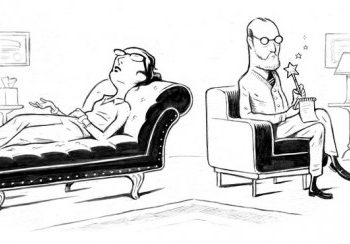
5 Common Misconceptions About Therapy
5 Common Misconceptions About Modern Therapy
Psychotherapy has faced criticism for much of its existence. Though skepticism has declined in recent years, there are still many misconceptions that many believe to be true about the field. We thought it might be fun to address a few. Here’s our list of common misconceptions about therapy:
-
Therapy is only for very ill people or people with “serious issues.” At Eugene Therapy, we believe ‘we are all more alike than otherwise’. We’re all about removing the stigma of mental health treatment. This means that we are all imperfect, and could benefit from treatment. It’s commonly believed that individuals who seek therapy MUST be struggling with deep, dark emotional or behavioral problems. In reality, people see therapists for many reasons beyond serious mental health issues, including depression, anxiety, grief, relationship problems, or even a simple desire to improve themselves as a person.
-
Going to therapy is a sign of weakness. Some people believe that they should be able to manage things on their own, and that visiting a therapist means they’ve failed at this task. On the contrary, it takes great strength to acknowledge that you can’t fix a problem on your own. People need to lean on others sometimes, and it is often very useful to have someone else’s perspective when trying to resolve an issue in your life. Humans are social animals and problem solving with others is, to a great extent, in our DNA.
-
Why pay a therapist for advice that I could get from a friend? This is a common misconception. Frankly, a good therapist will tell you things your friends just won’t (or shouldn’t). Therapists are trained to address challenges using strategies that often do not involve giving advice. Instead, a good therapist safely guides you through a vast range of experiences, emotions, and adversities without telling you what to do or how to do it. A therapist is also equipped to confront issues that are very serious in nature, which your friends may not be as prepared to respond to. Your relationship with your therapist becomes a model for how to interact with the rest of the world. Good treatment focuses on supporting you to become the bet you possible — sometimes that guidance is achieved by gentle, therapeutic confrontation.
-
Therapy is way too expensive. Therapy can actually be very affordable. At Eugene Therapy it’s usually the cost of a copay or we have therapists that can treat clients on a sliding fee scale or at a reduced cost. Thanks to the Affordable Care Act and Oregon law most insurance policies now cover therapy expenses. This wasn’t the case just a few years ago, so times are changing for the better.
-
Therapy involves lying down on a couch. Some classically trained psychoanalysts continue to use the couch. The theory behind this is that patients who are lying down are more relaxed and thus freer to talk, especially since they cannot see the analyst’s reactions. At Eugene Therapy, we do counseling and psychotherapy (not psychoanalysis) our couches are for sitting and facing the therapist, not lying down (unless you’re really tired or need to stretch and then well, we’re game).
If you’re interested in learning more about how therapy can help, call us at 541-868-2004 for a confidential discussion.

